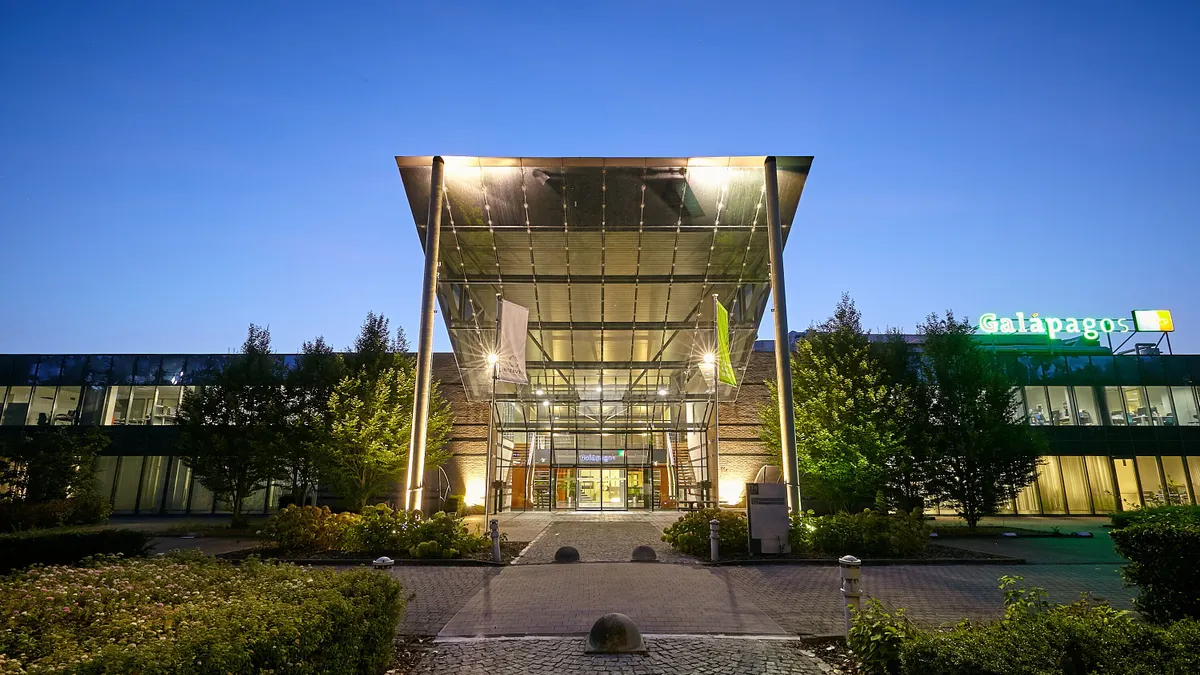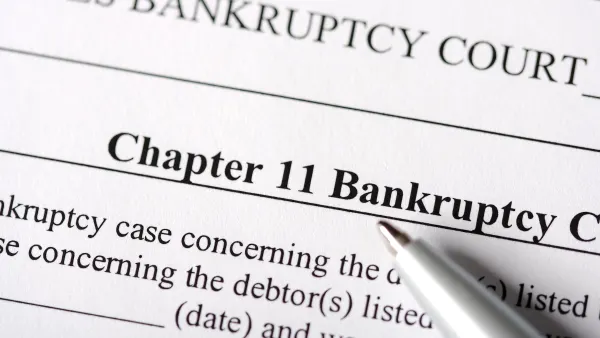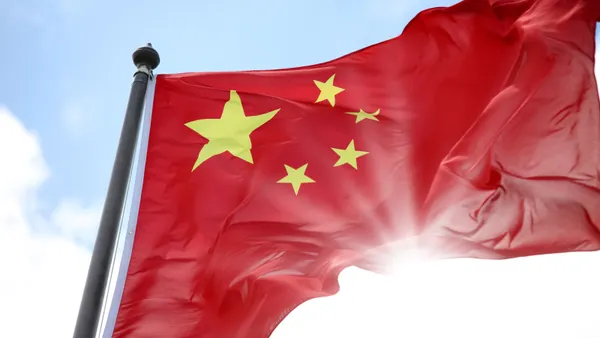Dive Brief:
- Belgian drugmaker Galapagos, plagued by a series of setbacks in recent years, will split into two publicly traded companies, with one focused on business development.
- The new company, dubbed SpinCo for now, will start life with 2.45 billion euros, or about $2.5 billion, in cash to build a pipeline in oncology, immunology or virology through transactions, Galapagos said Wednesday. The remaining company will keep the name Galapagos and work to advance its cell therapy pipeline and lead CAR-T candidate, called GLPG5101.
- As part of the restructuring, Galapagos and Gilead agreed to amend a major licensing and development deal they struck in 2019. Gilead will own about 25% of each of the two companies going forward and will return development and commercialization rights to legacy Galapagos while retaining the right to receive royalty payments.
Dive Insight:
Galapagos’ American depositary receipts have plummeted in recent years, trading around $29 apiece early Wednesday after hitting $274 in February 2020. Its emphasis on CAR-T, the challenge of finding good deals and the requirements of the Gilead collaboration have weighed on the company’s ability to succeed in business development, Leerink Partners analyst Faisal Khurshid wrote in a note to investors.
“Whether this new structure will better enable BD at SpinCo is the key question here,” Khurshid wrote. While the split is a “reasonable strategy to unlock value,” some of the same fundamental issues that hampered Galapagos will continue to apply, he said.
Gilead will still have option rights to medicines developed by the new entity, though Gilead committed to good faith negotiations to amend the original deal in a way that will “achieve positive value for all of SpinCo’s shareholders,” Galapagos said. Gilead also has the right to name directors to the board of the new company, while the company’s directors on the Galapagos board will step down.
The move comes after a rocky few years for Galapagos, starting with weaker-than-expected study results for its key drug filgotinib in May 2020, followed by a surprise rejection from the Food and Drug Administration and Gilead’s decision to hand back some of the rights to the medicine. In 2021, Gilead and Galapagos ended development of another experimental drug after disappointing research results.
Galapagos’ longtime CEO and co-founder retired in 2021, replaced by the former chief scientific officer at Johnson & Johnson, Paul Stoffels. Stoffels oversaw a revamp of the company’s research in 2022, branching into cell therapy and cutting 200 jobs. Then another setback occurred, when Galapagos gave up on plans to pursue an expanded European Union approval for filgotinib in 2023 after a study failure.
Going forward, Galapagos will focus on cell therapy and discontinue work on small molecule programs, seeking partners for assets including an experimental autoimmune disorder treatment in Phase 2 testing.
The company also plans another round of layoffs, affecting about 300 positions or 40% of its employees. A site in France will close and “meaningful reductions” will occur among Belgian staff, Galapagos said.













